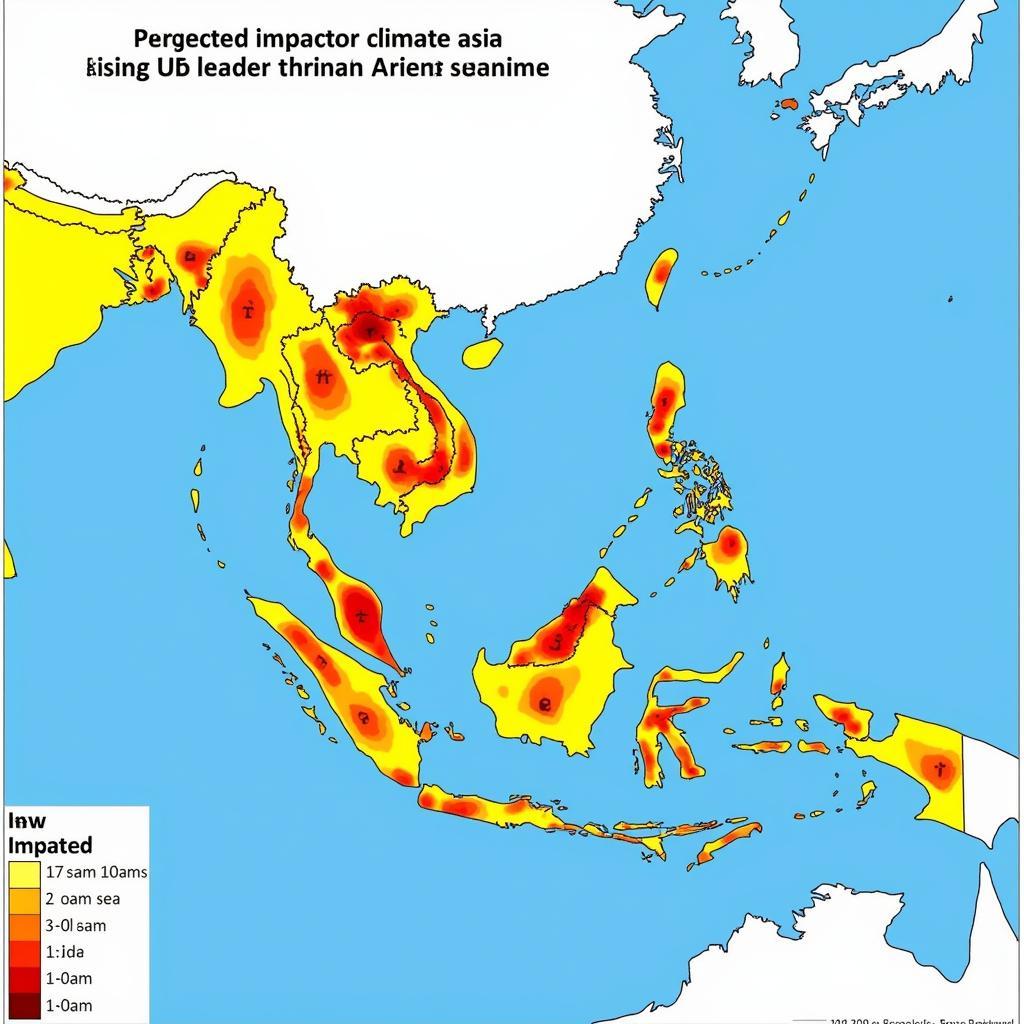The Asean Action Plan On Joint Response To Climate Change 2012 is a crucial framework guiding the region’s collaborative efforts to mitigate and adapt to the impacts of climate change. This plan, adopted in 2012, acknowledges the unique vulnerabilities of Southeast Asia to climate change and emphasizes the importance of regional cooperation in addressing this global challenge.
Understanding the ASEAN Action Plan on Joint Response to Climate Change 2012
The ASEAN Action Plan on Joint Response to Climate Change 2012 recognizes the interconnectedness of environmental, economic, and social issues within the context of climate change. It outlines key strategic areas for action, including climate change mitigation, adaptation, disaster risk reduction, capacity building, and regional cooperation. The plan emphasizes a proactive approach, promoting sustainable development while ensuring the region’s resilience to the adverse effects of a changing climate. One key aspect is the focus on sharing best practices and technologies among member states to enhance regional capabilities in climate action.
 ASEAN Climate Change Action Plan Regional Impact Map
ASEAN Climate Change Action Plan Regional Impact Map
Key Priorities of the Action Plan
The ASEAN Action Plan on Joint Response to Climate Change 2012 identifies several key priorities:
- Mitigation: Reducing greenhouse gas emissions through promoting renewable energy, improving energy efficiency, and sustainable land management.
- Adaptation: Enhancing resilience to the impacts of climate change through measures like developing drought-resistant crops, improving water management, and strengthening coastal protection.
- Disaster Risk Reduction: Integrating climate change considerations into disaster risk reduction strategies and enhancing early warning systems.
- Capacity Building: Strengthening institutional and technical capacity within ASEAN member states to effectively implement climate action.
- Regional Cooperation: Fostering collaboration among ASEAN countries and with international partners to address climate change collectively.
Challenges and Opportunities
Implementing the ASEAN Action Plan on Joint Response to Climate Change 2012 presents both challenges and opportunities. Securing adequate funding, coordinating actions across diverse economies, and addressing capacity gaps are among the key challenges. However, the plan also provides opportunities for regional leadership in climate action, green growth, and sustainable development. By leveraging its collective strengths, ASEAN can drive innovation, attract investment, and build a more resilient and sustainable future.
The Importance of Regional Collaboration
The ASEAN Action Plan on Joint Response to Climate Change 2012 underscores the importance of regional collaboration. Climate change transcends national borders, and effective action requires coordinated efforts. By working together, ASEAN countries can share knowledge, resources, and best practices to amplify their impact and build a stronger, more resilient region.
“Regional cooperation is not just an option; it’s a necessity,” says Dr. Anya Sharma, a leading expert on climate change in Southeast Asia. “ASEAN’s collective response to climate change can serve as a model for other regions facing similar challenges.”
 ASEAN Renewable Energy Projects Showcase
ASEAN Renewable Energy Projects Showcase
Conclusion
The ASEAN Action Plan on Joint Response to Climate Change 2012 represents a significant step towards a more sustainable and resilient future for Southeast Asia. While challenges remain, the plan provides a roadmap for regional cooperation and action, offering hope for a future where ASEAN thrives in the face of a changing climate. The plan demonstrates the region’s commitment to addressing this global challenge and lays the groundwork for a more sustainable and resilient future.
FAQs
- What is the main goal of the ASEAN Action Plan on Joint Response to Climate Change 2012? To coordinate regional efforts to mitigate and adapt to the impacts of climate change.
- What are the key areas of focus in the action plan? Mitigation, adaptation, disaster risk reduction, capacity building, and regional cooperation.
- Why is regional cooperation important in addressing climate change? Climate change transcends national borders, and effective action requires coordinated efforts.
- What are some of the challenges in implementing the action plan? Securing funding, coordinating actions across diverse economies, and addressing capacity gaps.
- How can the ASEAN Action Plan on Joint Response to Climate Change 2012 contribute to sustainable development? By promoting green growth, resilience, and regional collaboration.
- What are some examples of mitigation efforts under the action plan? Promoting renewable energy, improving energy efficiency, and sustainable land management.
- How does the action plan address disaster risk reduction? By integrating climate change considerations into disaster risk reduction strategies and enhancing early warning systems.
For support, please contact Phone Number: 0369020373, Email: aseanmediadirectory@gmail.com Or visit: Ngoc Lien Village, Hiep Hoa, Bac Giang, Vietnam. We have a 24/7 customer support team.

